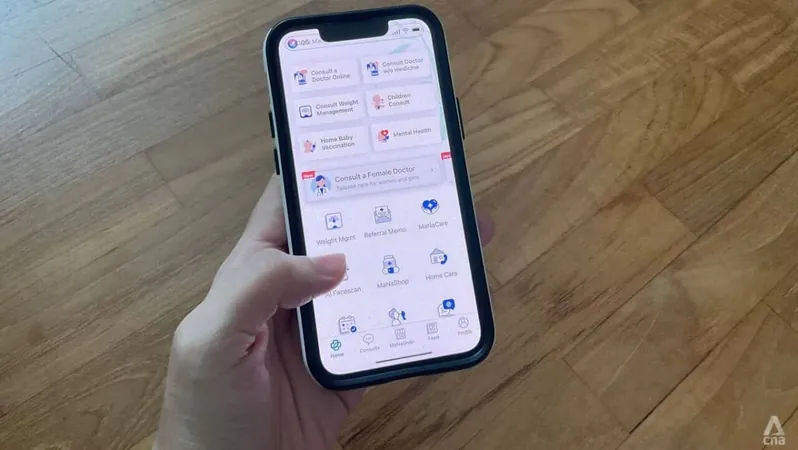
MOH's Strong Stance: Teleconsultation Safety Trumps One-Minute Rule for MaNaDr
2025-04-09
Author: Daniel
Singapore's Health Ministry Sets the Record Straight
In a pointed reminder on Wednesday, April 9, the Ministry of Health (MOH) took a stand against MaNaDr, a telemedicine provider whose license was revoked last December. The MOH emphasized that teleconsultation duration is not the sole indicator of quality medical care. Instead, they stressed the importance of "quality and adequacy" in patient consultations.
MaNaDr's Controversial One-Minute Policy
At a recent press conference, MaNaDr announced it would enforce a new rule: all teleconsultations must last at least one minute before a medical certificate can be issued. However, MOH quickly rebutted this assertion, declaring that just surpassing the one-minute marker doesn't guarantee proper patient care. "The duration should fit the patient's profile and medical conditions," the ministry stated.
Quality Assurance is Non-Negotiable
The MOH reminded all teleconsultation providers to adhere to strict quality assurance measures. These include frequent reviews of protocols to ensure that medical assessments are thorough, and that prescriptions and medical certificates are issued based accurately on medical grounds. The ministry made it clear that substandard consultations could pose serious risks to patient safety and assessment accuracy.
License Revocation: A Cautionary Tale
MaNaDr Clinic's license was revoked after the MOH revealed an "entrenched culture of disregard for ethical and clinical standards". Following this, the clinic was forbidden from providing outpatient services, whether in-person or via telemedicine.
Navigating Accountability and Governance
At the press event, MaNaDr’s CEO Siaw Tung Yeng attempted to clarify that clinic and technology operations run separately under Mobile-health Network Solutions. However, the MOH reminded that under the Healthcare Services Act, all licensees are ultimately responsible for compliance, irrespective of their management structures. Any medical practitioner must operate under the supervision of their licensee.
The Rise of AI in Healthcare: A Double-Edged Sword
Additionally, reports emerged regarding MaNaDr's plans to integrate artificial intelligence to enhance clinical standards and streamline the management of medical records. While AI can improve efficiency and outcomes, the MOH cautioned that it also introduces various ethical risks. Licensees were urged to ensure the accuracy and security of AI tools, as well as compliance with regulatory mandates.
Conclusion: Prioritizing Patient Safety in Telemedicine
As the telemedicine landscape evolves, the MOH's message is clear: ensuring the safety and quality of healthcare services is paramount. With regulatory changes and technological advancements on the horizon, providers like MaNaDr are reminded of their responsibilities in delivering high-quality, ethical healthcare.



 Brasil (PT)
Brasil (PT)
 Canada (EN)
Canada (EN)
 Chile (ES)
Chile (ES)
 Česko (CS)
Česko (CS)
 대한민국 (KO)
대한민국 (KO)
 España (ES)
España (ES)
 France (FR)
France (FR)
 Hong Kong (EN)
Hong Kong (EN)
 Italia (IT)
Italia (IT)
 日本 (JA)
日本 (JA)
 Magyarország (HU)
Magyarország (HU)
 Norge (NO)
Norge (NO)
 Polska (PL)
Polska (PL)
 Schweiz (DE)
Schweiz (DE)
 Singapore (EN)
Singapore (EN)
 Sverige (SV)
Sverige (SV)
 Suomi (FI)
Suomi (FI)
 Türkiye (TR)
Türkiye (TR)
 الإمارات العربية المتحدة (AR)
الإمارات العربية المتحدة (AR)